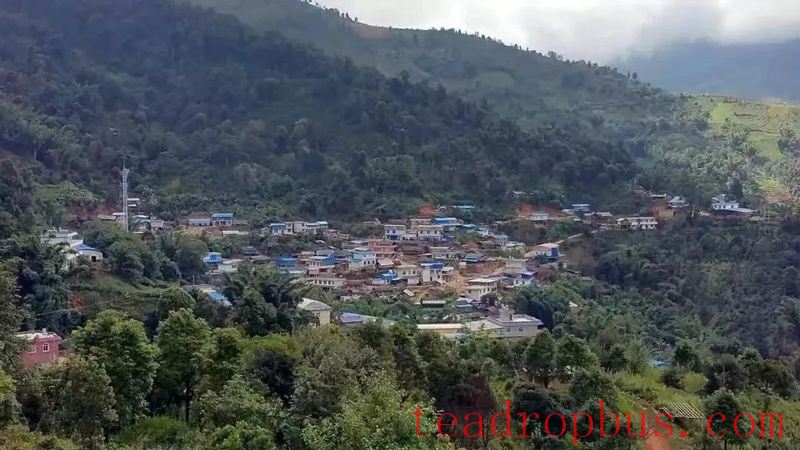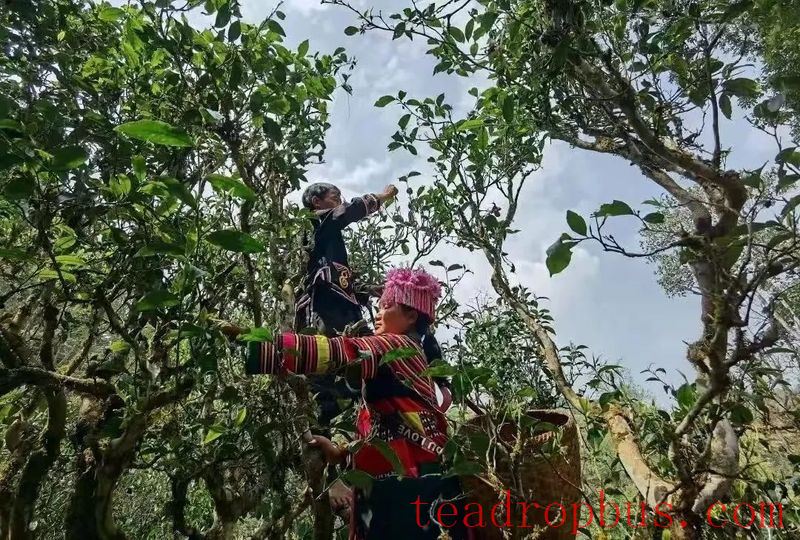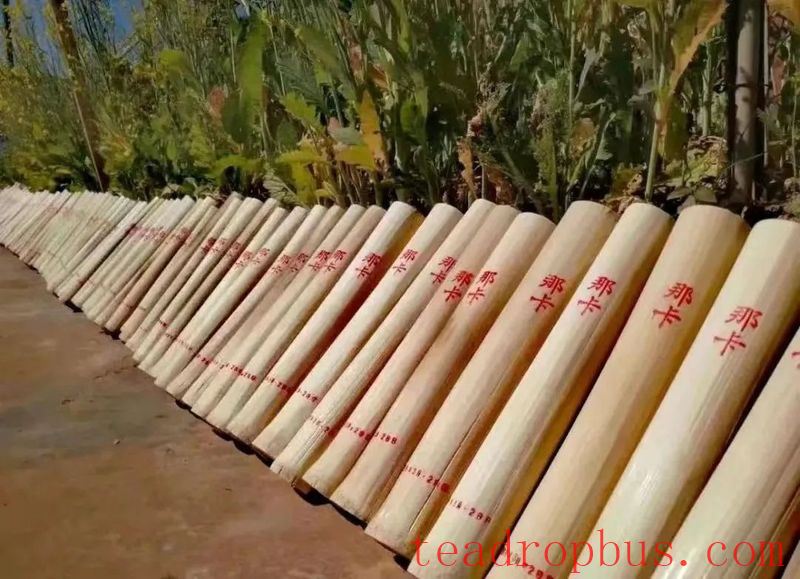Naka is a Laohu ethnic village under the jurisdiction of Damanlv Village Committee in Mengsong Township, Menghai County, Xishuangbanna Dai Autonomous Prefecture, Yunnan Province. It is located on the east side of Huazhu Liangzi Mountain and boasts an excellent ecological environment, particularly suitable for Tea tree planting and growth. Naka's ancient tree tea is the most representative tea in the Mengsong tea area, with over 600 mu of contiguous ancient tree tea gardens, where the trees are between 300 to 500 years old. The density of tea trees is high, growing in arboreal form, with many trees exceeding 2 meters in height and having diameters of more than 10 centimeters. While the ancient tree varieties in the Menghai production area are predominantly large-leafed, Naka is unique in being the only mountain with small-leafed ancient tree tea. The unique climate, soil, and air produce a tea with a fresh, delicate character, a rich flavor, tightly twisted leaves that are dark brown and lustrous, tender buds clearly visible, a strong honey aroma, a concentrated and refreshing infusion, balanced bitterness, astringency, and a sweet aftertaste, as well as a harmonious tea fragrance. It is also rich in essence and smooth, belonging to the category of highly aromatic ancient tree teas, earning it the titles of “Little Lao Banzhang” and “Noble among Teas.”



The Laohu people of the Naka region are most famous for their bamboo tube tea-making craftsmanship. Historical records show that as early as the Qing Dynasty, Naka tea was offered as tribute to the “Cheli Xuanwei Fu” annually. The bamboo tube tea made by Naka was designated as a tribute item for the Burmese king. The ancient tree teas from the Naka tea area have always been widely sought after due to their superior quality and other reasons.